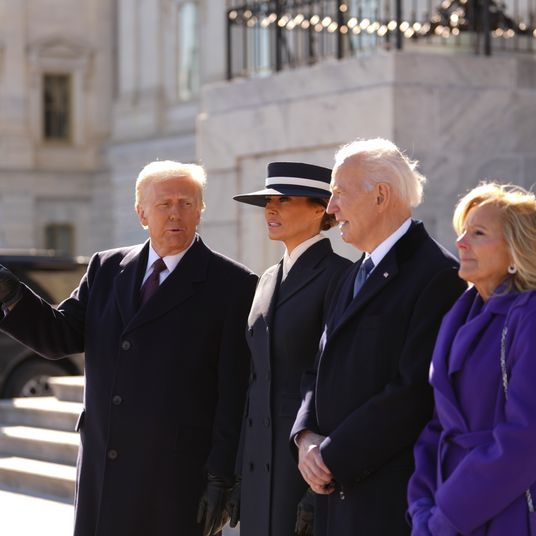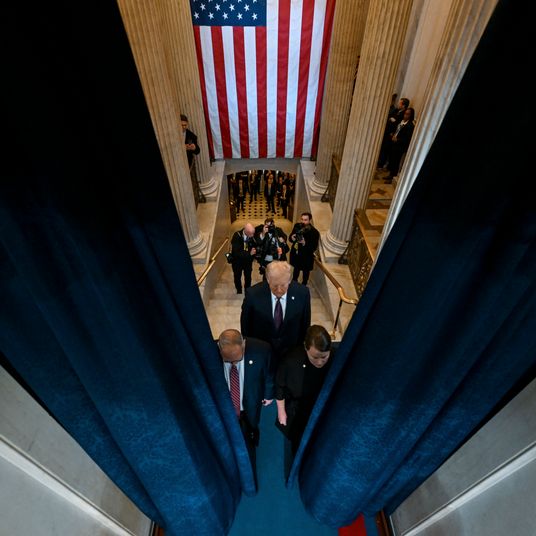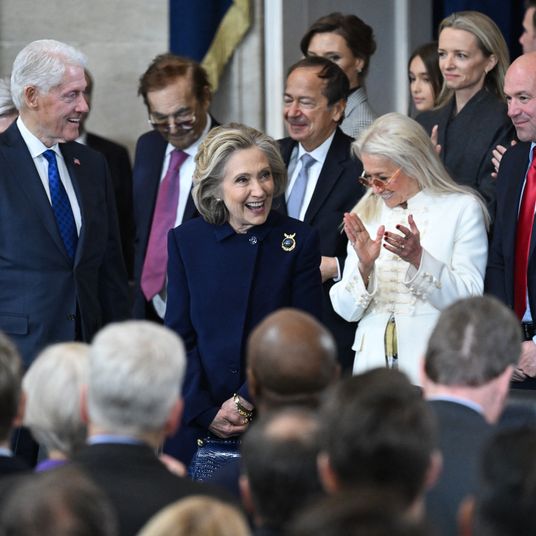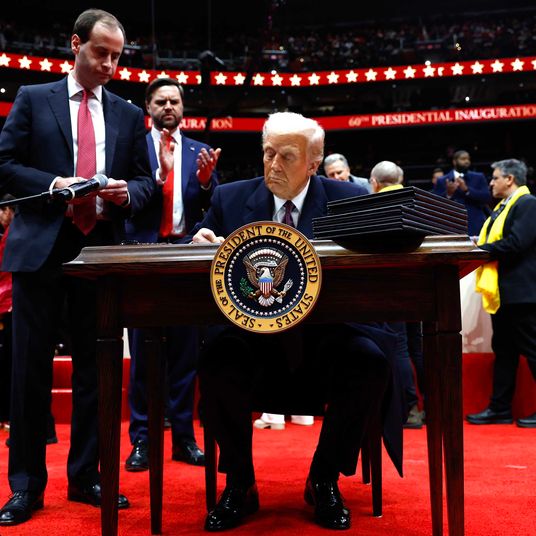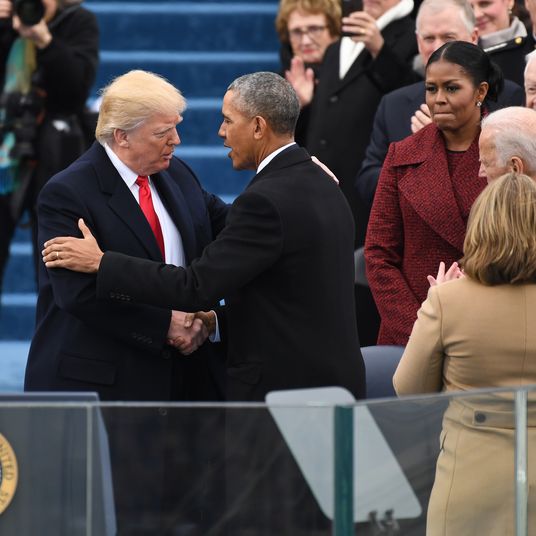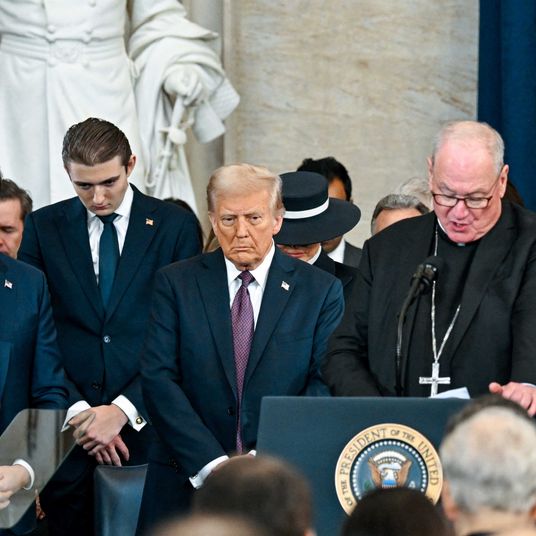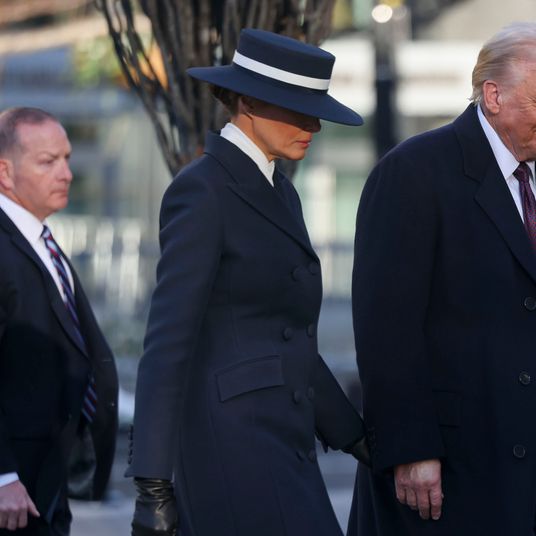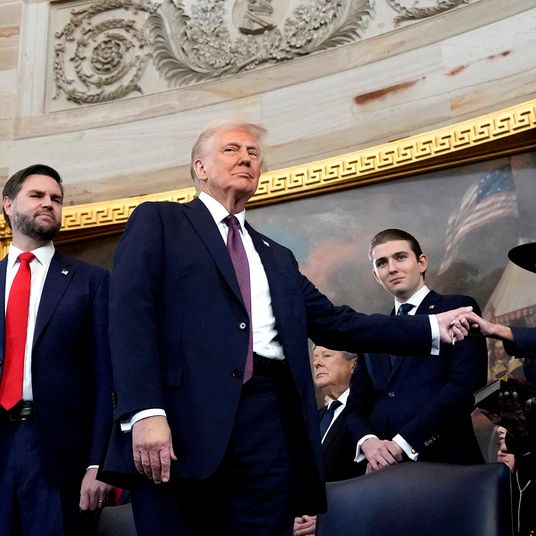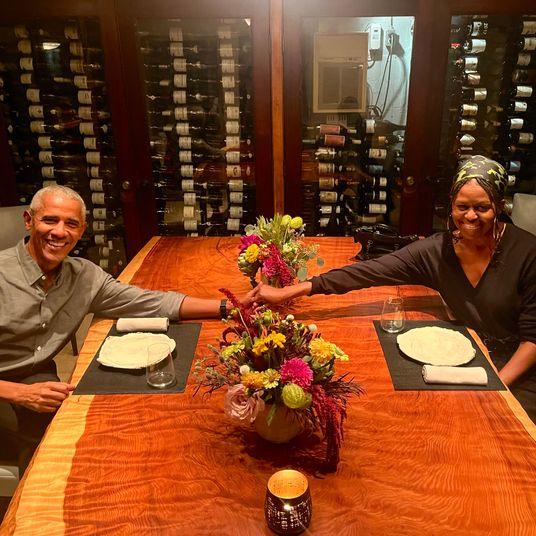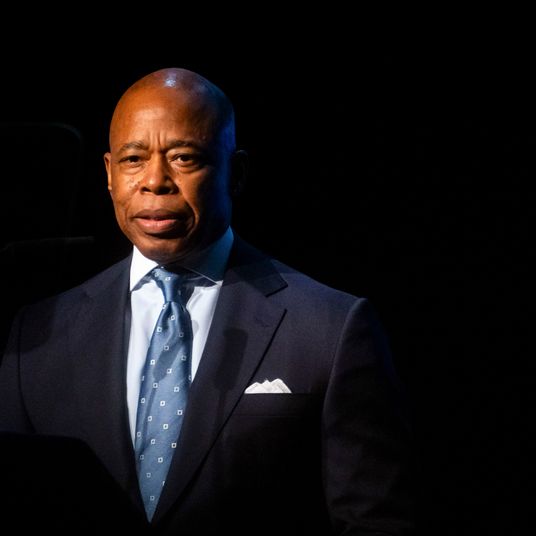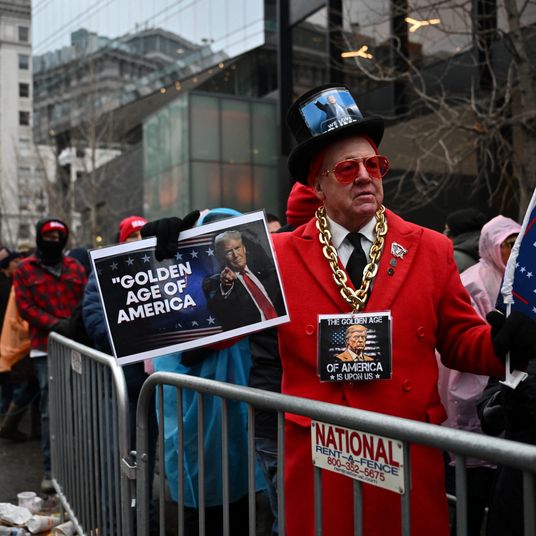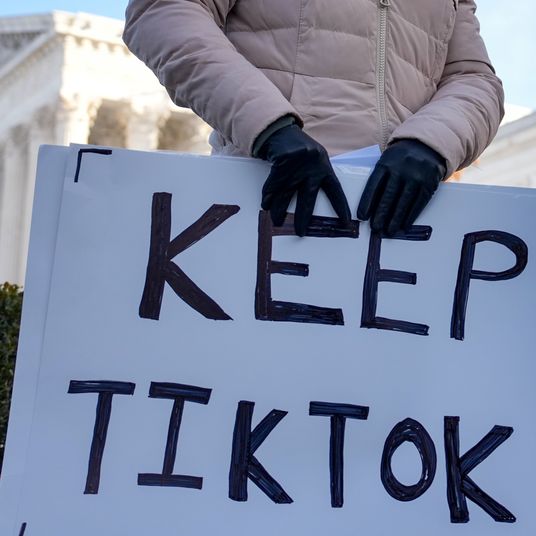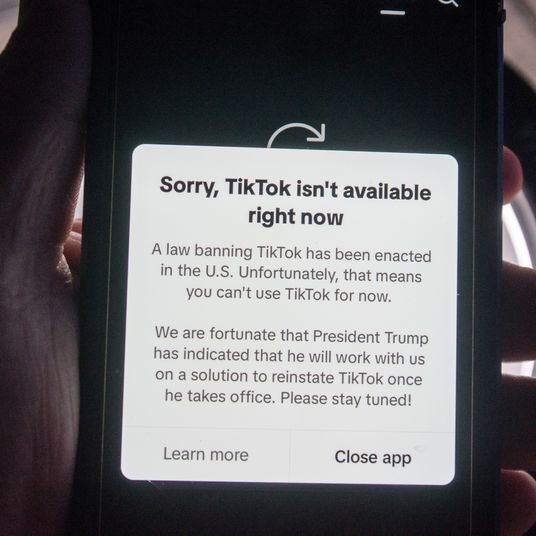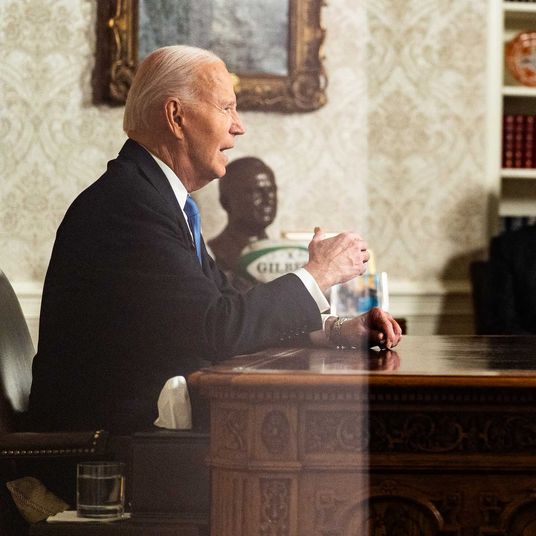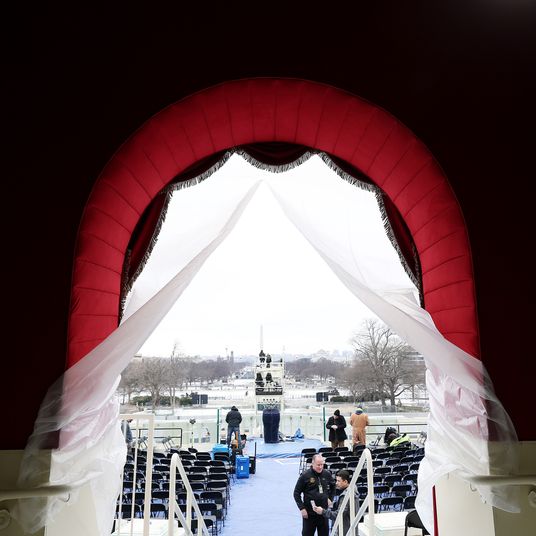
Photo: AP
“April is the cruelest month,” wrote T.S. Eliot, and it’s difficult to imagine that Barack Obama and his people would in any way disagree. For the past 29 days, Obama has suffered through the rockiest stretch of his bid for the Democratic nomination — a period in which he rarely won a news cycle, as a series of blunders and controversies made it seem increasingly as though he was losing control of the narrative of his campaign and of his public image. Then came his extraordinary press conference yesterday, in which Obama sought both to make a clean break with the Reverend Jeremiah Wright, and, in the process, regain a grip on his destiny. Did he pull it off? If you believe the conventional punditocratic wisdom, the answer is an unqualified yes. Indeed, there are even those who believe Obama accomplished something greater: that he pulled off what constitutes his own Sister Souljah moment.
For many months now, the political class has been wondering when Obama would get around to such a moment — an instance in which he loudly challenged a core Democratic constituency on an issue of principle, as Bill Clinton famously did in 1992 when he pilloried a B-list hip-hop act for some incendiary comments she made to the Washington Post regarding that year’s L.A. riots. For those whose memories on this topic are incomplete, the comments in question were these: “If black people kill black people every day, why not have a week and kill white people?” Which prompted Clinton to declaim at a meeting of Jesse Jackson’s Rainbow Coalition, which had hosted Souljah the night before, “If you took the words ‘white’ and ‘black’ and reversed them, you might think David Duke was giving that speech.”
A couple of the smarter journos around leaped at the parallel yesterday in the wake of Obama’s denunciation of his former pastor, and soon enough the meme was coursing through the cable-talkathon ether. The first was Newsweek’s Richard Wolffe, who argued that Obama “went far beyond Clinton’s criticism, disowning his former pastor — and running the risk of alienating a community on the South Side of Chicago that has been among his most ardent supporters.” The second was The New Republic’s Noam Scheiber, who noted that the lesson of the original Sister Souljah brouhaha was that “sometimes it’s just as important to have the right enemies as the right friends. And Obama, for better or worse, now has the right enemy.”
But the differences between Obama’s and Clinton’s gambits are many and worth pointing out — because they go a long way toward explaining why the long-range political implications of the former may be less sunny than the latter’s proved to be.
To start with, whatever admixture of courage and calculation that one ascribes to Clinton’s maneuver, the risk he took in going after Lady Souljah was one that he took voluntarily — it was a risk of choice. The rapper, though every bit as hysterical and inflammatory as the reverend, had not become an issue in the 1992 campaign. Clinton had no relationship to her. Certainly, her comments posed no peril to his nomination. In all of this, Obama’s situation was starkly different. His decision to cut his ties from Parson Wright, which might have been construed as brave if it had come a year or even a month ago, was by no means an act of political fortitude. It was an act of political necessity.
Now, I don’t mean remotely to suggest that what Obama did wasn’t hard or painful. In fact, the agony involved was evident in his bearing from start to finish as he addressed the cameras. And here we find another crucial difference between his performance and Clinton’s. Sixteen years ago, WJC was a model of righteous fury concerning Souljah’s hate-filled blatherings; he conveyed a sense that he was personally affronted by her invidiousness.
Yet for all the talk about Obama’s anger and indignation yesterday, his onscreen affect was downcast, anguished, wounded, wan. The upside of this is that Obama came across as deeply human, profoundly vulnerable. But count me among those who believe he would have done himself a bigger favor — especially in light of his gathering reputation for being too detached, too professorial for his own good — had he appeared to be as viscerally pissed-off at Wright as he no doubt is.
It’s possible, of course, that Obama’s cool demeanor was an attempt to keep things from going thermonuclear between him and the reverend in the days ahead. That Wright has ceased to give a damn about Obama and his presidential aspirations is a fair conclusion based on his performance during his three-day tour of speechifying and preening for the press. The question is how much further he is willing to go — and what bombs he might eventually drop on his wayward pseudo-son. Might Wright detail all the controversial sermons he delivered when Obama was present in the pews? Might he reveal private conversations about politics in which Wright presented his nuthouse views and Obama registered no disagreement? True or not, such allegations could dog the hopemonger all throughout the fall campaign.
Back in 1992, it should be recalled, Sister Souljah railed at Clinton for demagoguing her. And so did Jackson, who accused 42 of trying to “set off a dynamic to compete with Dan Quayle on the cultural-elite issue and the family-value issue.” But this reaction was precisely what Clinton had been counting on from the outset; the counterpunches served his purpose, which was to demonstrate that he was “a different kind of Democrat.” Thus the main reason Obama’s severance from Wright doesn’t really qualify as a Sister Souljah moment: In 1992, there was no other shoe to drop on Clinton, but Obama may yet find himself facing a hailstorm of very ugly footwear. —John Heilemann
Related:
Bill Clinton Versus Jeremiah Wright: Which Loose Cannon is Louder?
Gas-Tax Holiday: Ominous Preview of a Clinton or McCain Presidency?
For a complete and regularly updated guide to presidential candidates Hillary Clinton, Barack Obama, and John McCain — from First Love to Most Embarrassing Gaffe — read the 2008 Electopedia.





